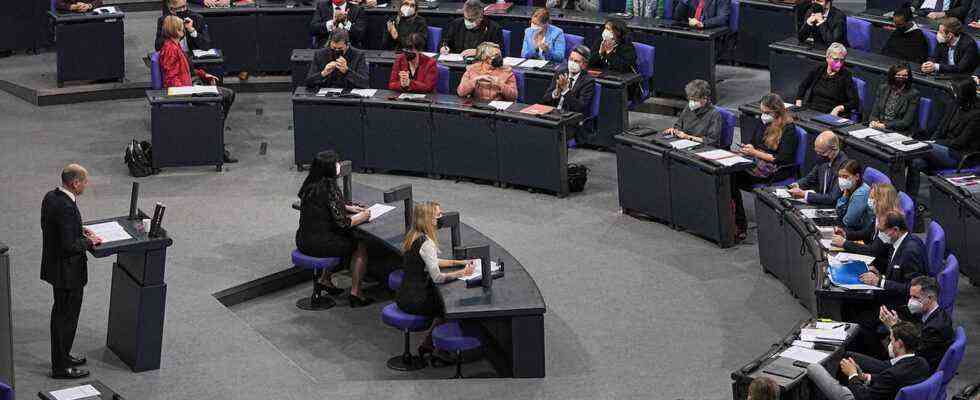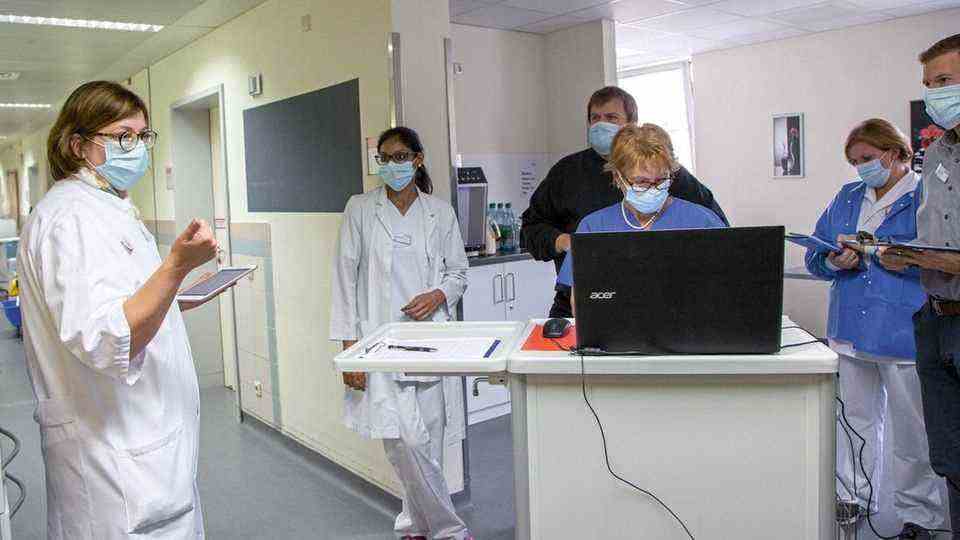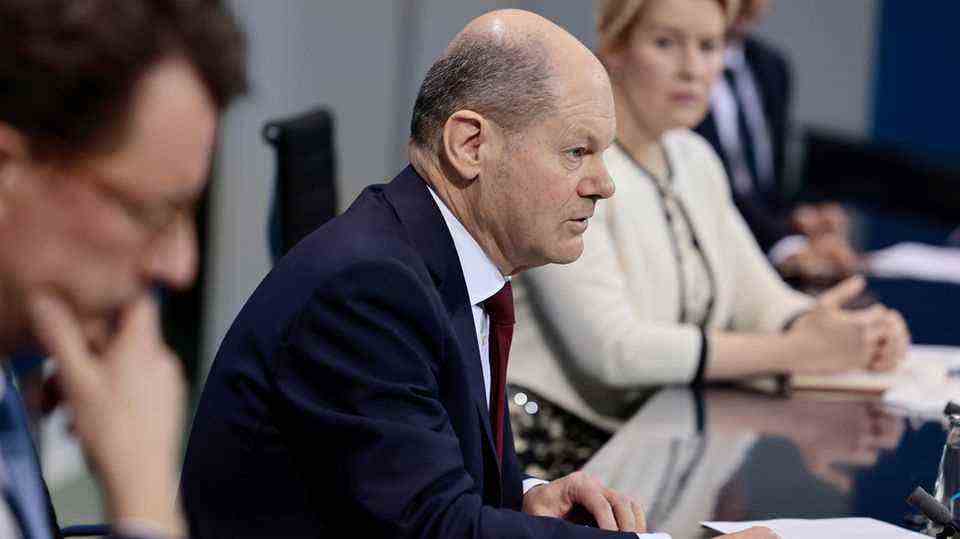“An insolence”
Despite the shortening for citizens: In the Bundestag, the old convalescent period continues to apply in some cases
Chancellor Olaf Scholz (SPD) speaks in the Bundestag
© Michael Kappeler / DPA
Clear criticism from the opposition: The Robert Koch Institute (RKI) has reduced the convalescent status from six to three months – but the new regulation does not apply to the Bundestag in part.
Despite the shortening of the convalescent status from six to three months for citizens, the old deadline still applies in some cases in the Bundestag. This affects access to the plenum and the committees, said a spokesman on Tuesday.
This is regulated by the general decree of Bundestag President Bärbel Bas (SPD). For access to the workplace, i.e. to the offices of members of parliament, parliamentary groups and the Bundestag administration, the period reduced to 90 days according to the Infection Protection Act applies. First, the “Bild” reported about it and wrote about a “Corona special right” that the Bundestag was treating itself to.
According to the spokesman, the general decree refers to the Covid 19 protective measures exception ordinance for the recovered status. When the order was issued, this provided for a period of at least 28 days and a maximum of 6 months. That still applies.
The regulation can be adjusted by Bundestag President Bas by changing her general decree. “In view of the very dynamic situation, which is associated with some uncertainties, yesterday’s federal-state meeting, the experiences of the current week of meetings and the further pandemic events, it is continuously analyzed whether changes to the general decree are indicated,” said the spokesman for the Bundestag.
“An insolence”: clear criticism from the opposition
Clear criticism came from the ranks of the Union faction. “To be honest, I would find it strange if something different applied in the Bundestag than in Germany as a whole,” said First Parliamentary Secretary Thorsten Frei (CDU). The question of how long the convalescent status is valid should be answered primarily medically. That’s why it affects members of the Bundestag just like others.
CSU regional group leader Alexander Dobrindt blamed Health Minister Karl Lauterbach (SPD). “It is outrageous to shorten the recovered status to three months in a technically questionable manner, but to leave it at six months for the Bundestag,” said the CSU politician on Tuesday. “In doing so, Lauterbach did democracy a real disservice.”
The AfD criticized the fact that different rules regarding the recovered status apply to members of the Bundestag in Parliament than they do to the general public. In Berlin, AfD MP Stephan Brandner spoke of an “extra sausage for MPs”. He also generally criticized the shortening of the validity of the convalescent status from six to three months by the Robert Koch Institute (RKI).
Bundestag Vice President Wolfgang Kubicki (FDP) spoke in the magazine “Spiegel” in favor of holding on to the six months for the members of parliament. However, Kubicki fundamentally opposed the reduction of the convalescent status by the RKI, which, in his words, “has not yet been adequately scientifically justified”.
The RKI’s decision is otherwise controversial, mainly because it was announced at very short notice. During their consultations with Chancellor Olaf Scholz (SPD), the prime ministers of the federal states agreed on Monday that such changes would be made a little longer in advance in order not to create uncertainty. The RKI justified the shortening with the fact that, especially with the current omicron variant, those who have recovered only have a shorter protection against renewed corona infection.



